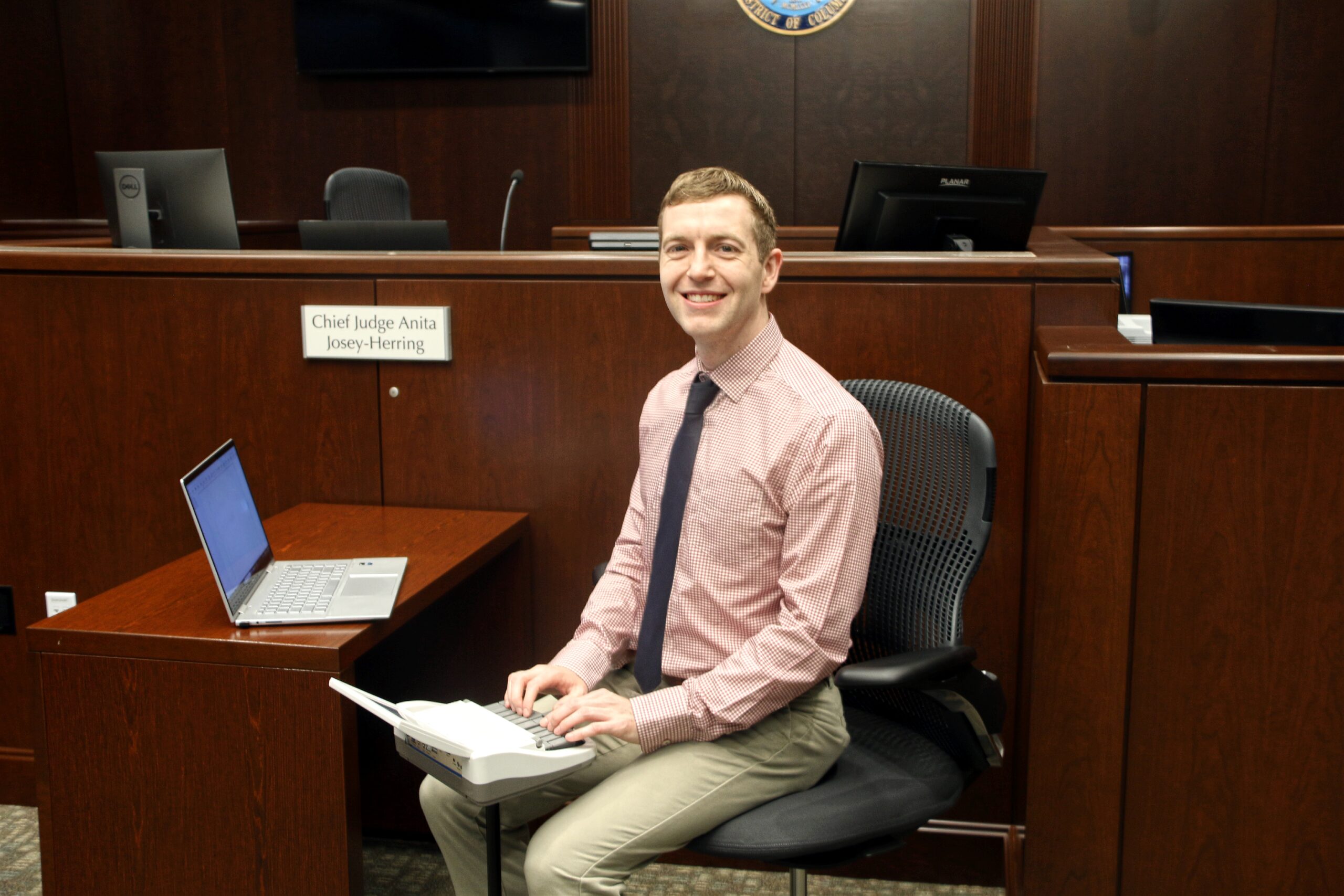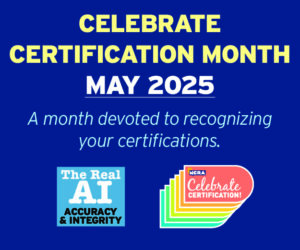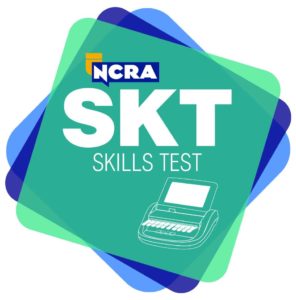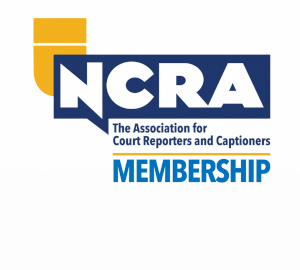By Meredith Seymour
From crime reporter to court reporter
Scott Bellile, a trainee at the Washington, D.C., Superior Court, is no stranger to the inside of a courtroom. His first job as a crime reporter led him down the path of stenography.
JCR | How did you get interested in court reporting?
SB | Prior to becoming a court reporter, I worked as a journalist. Covering crime – one of my favorite news beats – involved combing through court documents and occasionally attending trials.
After a few years, I left the newspaper for another position in communications. During that job hunt, I had scoured news reporter postings on Indeed. These keyword searches also displayed numerous court reporter positions. While I wasn’t qualified to be a stenographer, the job description – producing the verbatim record in those fascinating courtrooms – resonated with me for a year.
Fast forward to 2020, pandemic boredom was in full swing, and I needed an activity to pass the time. Why not explore steno? I completed the NCRA A to Z® Intro to Steno Machine Shorthand program that summer and began a two-and-a-half-year remote education at Lakeshore Technical College in Wisconsin that fall.
JCR | What was the hardest part of transitioning from school to the real world?
SB | Nothing sticks out, and here’s why. I am fortunate to be working as a “court reporter trainee” for the Washington, D.C., Superior Court. The DCSC’s program accounts for me being new to the field by easing me into courtrooms and providing me mentors, shadowing opportunities, and short-term editing resources.
I encourage upper-speed steno students to contact DCSC’s Court Reporting Division for more information on the trainee program if they desire a major-city courthouse position where they can build their confidence gradually.
JCR | How did you feel both going into your first assignment as a reporter and coming out of it?
SB | I spent two weeks shadowing before a busy day at the courthouse resulted in my first two jobs. I was somewhat nervous to go solo, but the first assignment was a simple civil trial that was postponed 40 minutes later because one of the parties felt ill and could not speak well. The writing pace was slow and manageable.
As a result, I felt fearless entering my second assignment that afternoon, a 150-minute criminal motion hearing. This time, all parties were healthy and talking at a normal pace. Speed-wise, I kept up. The startling part was the attorneys ordered the 100-plus pages on a three-day turnaround. I didn’t even have the courthouse’s page formats yet. With the help of my supervisors, we worked around the clock to deliver a professional transcript on time.
JCR | What do you enjoy most about court reporting?
SB | I feel a deep purpose working as a court reporter because machine shorthand is a niche and highly in-demand skill. As a bonus I utilize many skills I honed during my journalism days, including listening, research, and editing. The media industry is turbulent today, so I’d encourage journalism school grads in search of a stable, well-paying, and rewarding career to consider court reporting.
JCR | How has involvement with state and national reporting associations benefited your career thus far?
SB | Simple gestures during my student days, such as the Wisconsin Court Reporters Association holding check-in sessions with us at every state convention and gifting us goodie bags of office supplies, made me feel so welcome in the field as I neared graduation. Experiencing an association where professionals cheer on one another is inspiring.
JCR | What was the best piece of advice you received from another court reporter that helped you?
SB | Create briefs for at least the court case name (as a double-stroker I use “call call”), the case number (“case case”), the defendant’s full name (“name name”), the date of the offense (“date date”), and the address where the offense occurred (“address address”). These save me from falling behind in court.
JCR | What’s your “can’t live without” item in your steno bag?
SB | The foot pedal. I wasn’t aware it existed when I began, but rewinding by foot saves me so much time I can no longer justify editing without.
JCR | Do you have any advice for reporting students?
SB | Practice diligently but recover fully. Steno is taxing on the mind and fingers, so listen to what your body needs. I averaged two hours of practice per day as a student. Crucial to my regimen were exercise and sleep. I also carved out time for travels, taking 11 trips during my tech school career, including to Alaska, Vancouver, Guatemala, Belize, Peru, and Spain. It is okay to step away for an evening or a week. Doing so helped my brain process what I had practiced while keeping my motivation high.
Scott Bellile is a trainee at the Washington, D.C., Superior Court. He can be reached at sbellile@gmail.com.
Meredith Seymour is an official from Madison, Wisc. She can be reached at m_hinck@yahoo.com.



